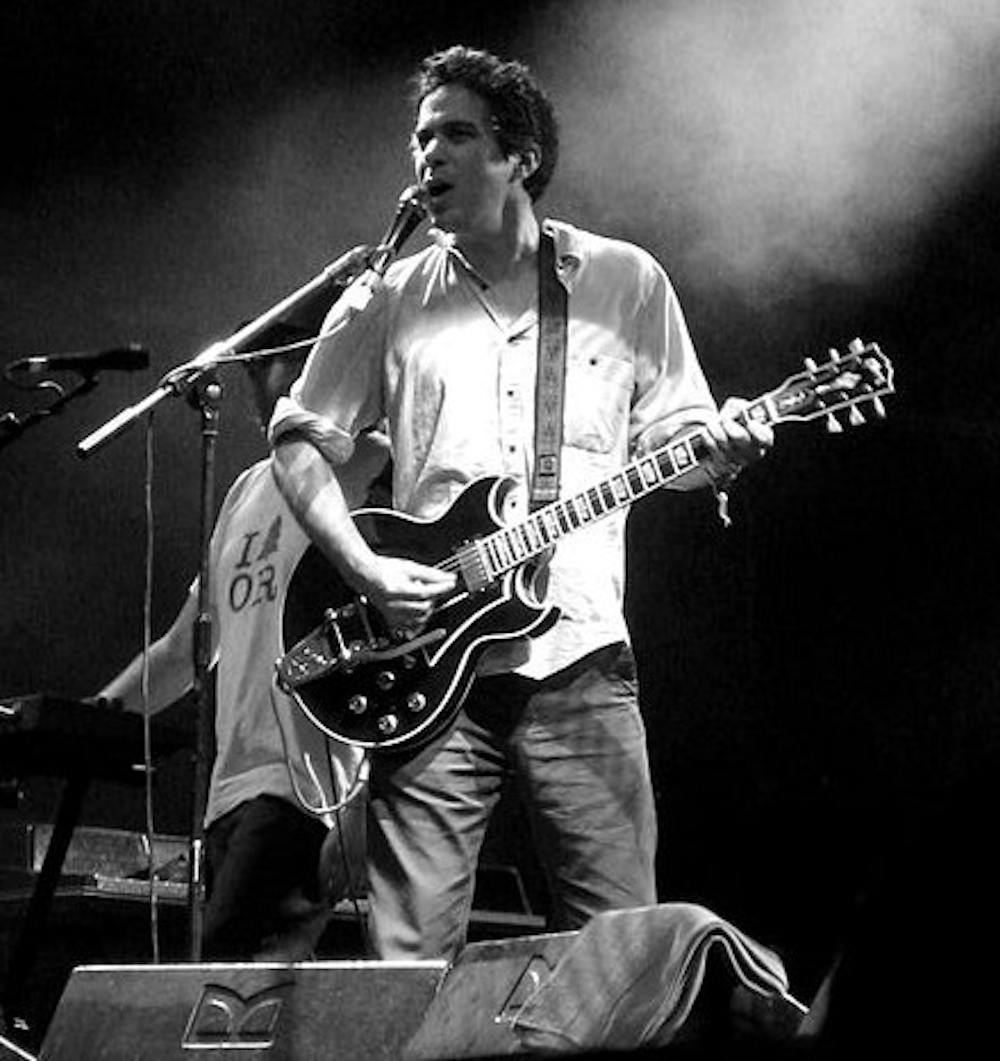Charlottesville’s hipster crowd packed the Jefferson Theater with a dense grove of diversely bushy beards for singer-songwriter M. Ward. If the audience was unfamiliar with Ward’s talent outside of his role as Zooey Deschanel’s quirky counterpoint in “She & Him,” this show proved to them his experience as both a songwriter and virtuosic guitarist.
Ward’s opening act, the recently formed indie-pop trio NAF with Jenny Lewis, was exhilarating, if not exactly novel. Plenty of themes rapidly approaching indie cliches were reconciled: war was decried, feminism praised. With persistent bass-lines, echoey vocals and flailing hair, the group got the audience going, albeit in a pretty heavily trod direction.
After NAF, Ward, clad unassumingly in flannel and jeans, flipped the tone, starting his act with a syrupy electric guitar riff from “Little Baby.” Taken from the artist’s most recent album, “More Rain,” “Little Baby” captured Ward’s latest sound pretty well: In his anachronistic, Portlandian fashion, it matched doo-wop backup vocals with straight-forward, electric rock instrumentation and Ward’s characteristic rasp. An old-timey, melancholic sound washed over songs from “More Rain.” Tunes like doo-wop waltz “I’m Listening (Child’s Theme)” evoked the sentimental blue, not yet tragic sadness which “More Rain” — and rain itself — capture.
The nostalgia of all this was more than hinted at, both in songs from and before “More Rain.” A highlight of the show was Ward’s sped-up cover of the jazz standard “I Get Ideas,” famously performed independently by both Louis Armstrong and Tony Martin. Another highlight was Ward’s imaginative “Rollercoaster,” which borrows its guitar motif from Buddy Holly’s “Everyday” — another song about roller coasters.
As much as Ward’s music imitates and emulates prior generations, he lays exclusive claim to his thoughtful songwriting. Though his lyrics are thoroughly conventional, he has a knack for turning a phrase. For example, “Requiem,” characterizes a veteran claiming “his heart was stronger than a heavy metal bullet,” and “Rollercoaster,” compares his lover to a rollercoaster, crooning, “you could make a dead man scream.”
Though the live setting obfuscated much of Ward’s wordplay, it brought his guitar to life. In nearly every song Ward played an impressive guitar solo, evoking the lost guitars titans such as Django Reinhardt. During the climax of the show, the rest of the band left, and Ward was handed an acoustic guitar. He played a densely complex, multi-part solo evoking his career-establishing “Duet for Guitars No. 2;” his hands flew as he nearly simultaneously strummed and picked out the melody.
In the end, Ward certainly impressed his audience. During the show, the artist mentioned he “should come [to Charlottesville] more often,” and his audience agreed. Though his latest material might not garner stellar reviews in the press, it holds up quite well live. What it lacks in polemics, it makes up for in a delightful exploration of largely forgotten music.





